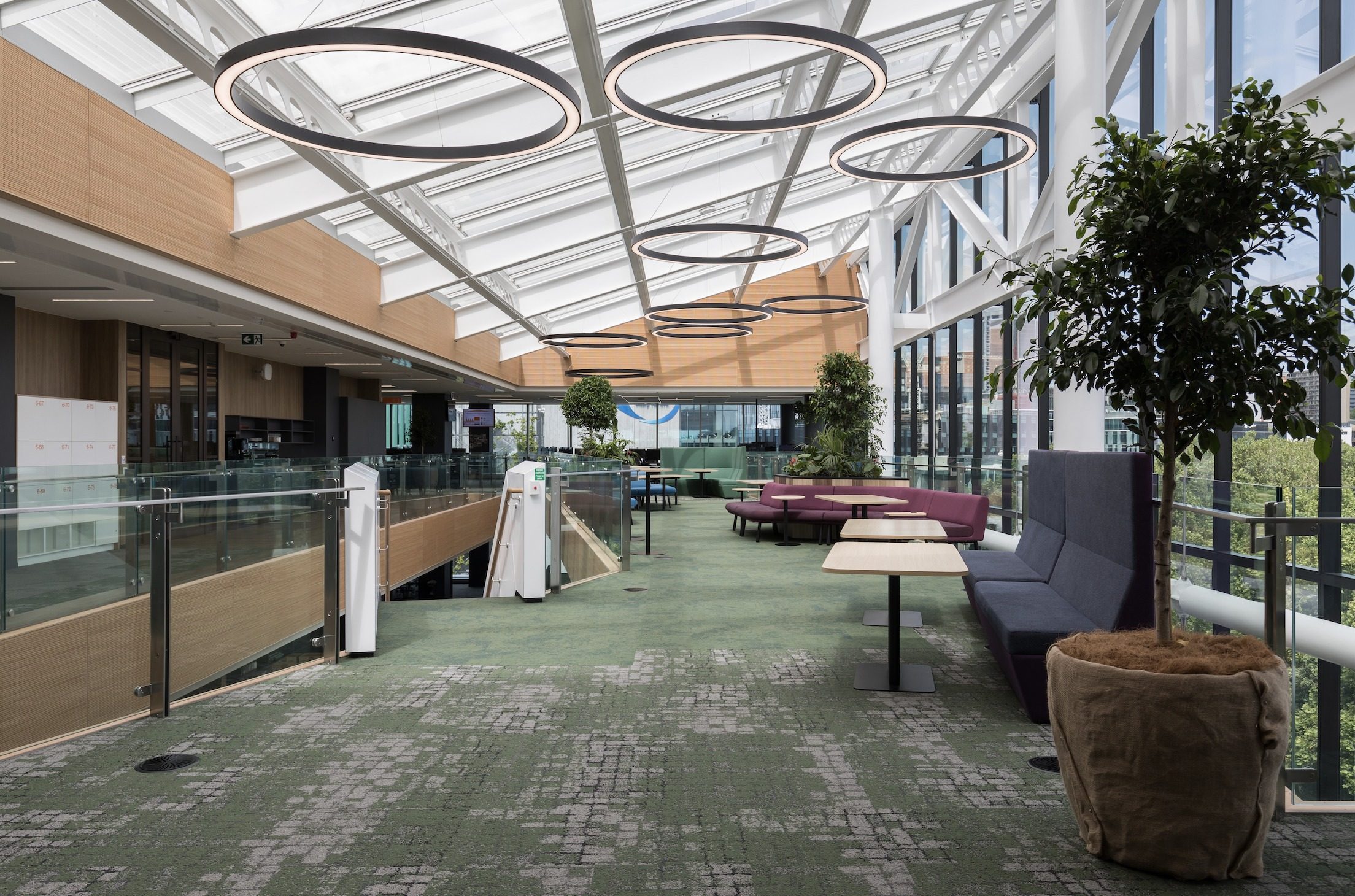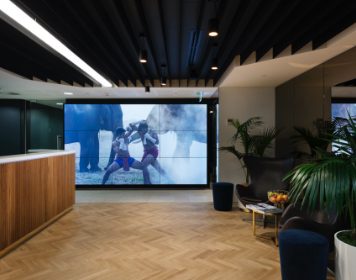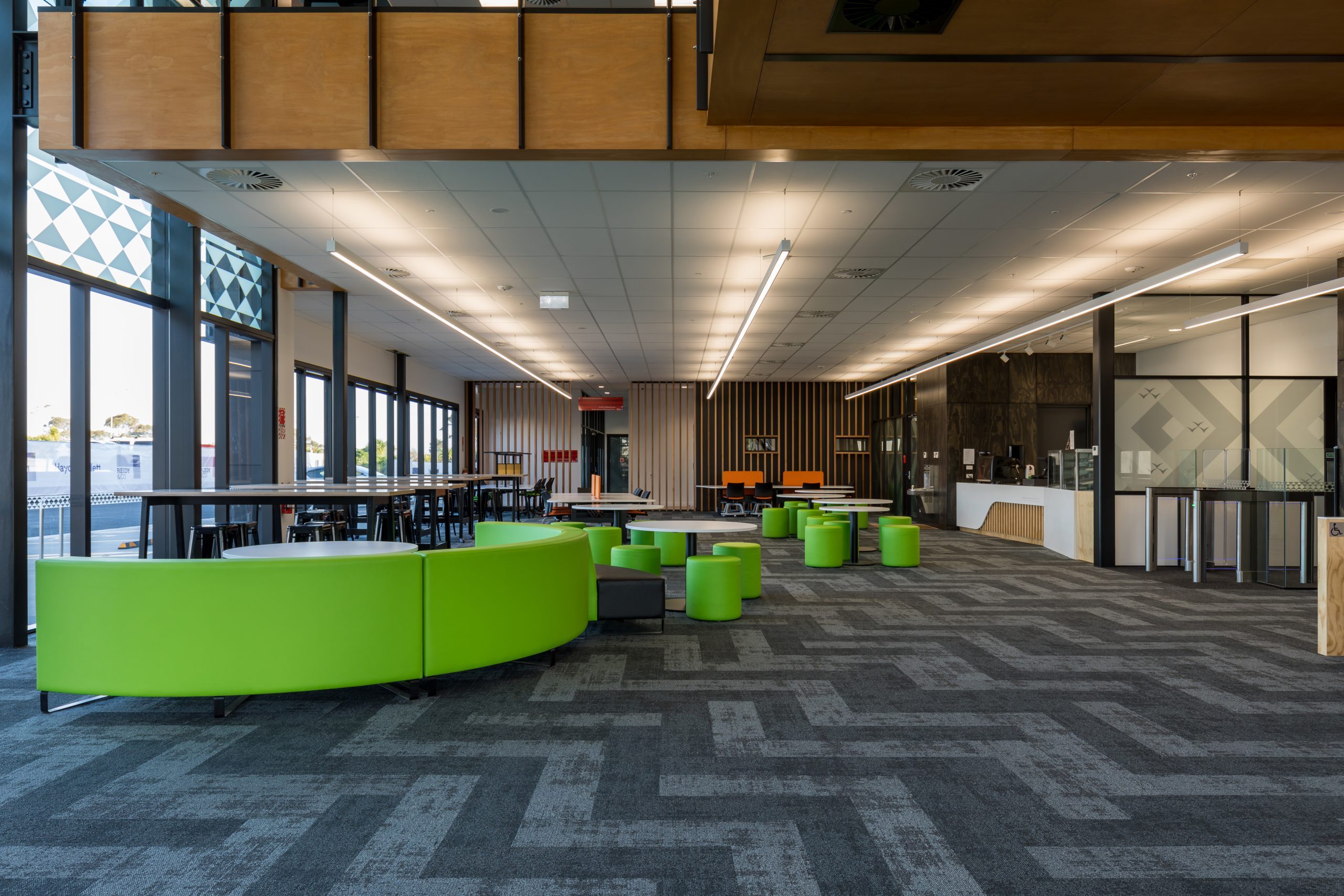Your office space’s flooring plays a crucial part in completing your company’s overall physical atmosphere. More than just selecting a beautiful looking type of flooring, you need to balance form and function so your staff and employees can work comfortably, efficiently, and productively.
Selecting the right commercial flooring products involves different considerations. We give these factors a closer look, so you know what kind of flooring will be conducive to your working environment.
1. Nature of Business
Consider the nature of your business. Businesses that regularly welcome potential clients should consider investing in durable, high-end flooring such as vinyl floor tiles or luxury carpets. This allows your office space to make a first good impression to both guests and applicants.
Businesses that have office spaces that double as a warehouse for their products, on the other hand, should avoid carpet flooring as they’re not a viable option for high foot traffic and will make maintenance much more difficult and costly.
2. Foot Traffic
Every room within an office will have varying foot traffic. The reception area, for example, is known to be a high-traffic area. Therefore, reception and lobbies will require heavy-duty flooring such as polished concrete, linoleum, or granite. Commercial flooring that features slip-resistant finishes also work best in busy areas where people come in and out to significantly reduce accidents on wet rainy days.
3. Cost
When looking at cost, you need to consider the overall life-cycle cost of each option and not just the price. You may be getting a far more affordable flooring option that may compromise quality. Invest in commercial flooring that you know will be suitable for long-term use.
We recommend consulting with experts who can help you determine which option best fits your office space, goals, and overall budget.
4. Maintenance
Every type of flooring will require some level of maintenance. However, some flooring options are much easier to look after than others. Concrete is one example, but even concrete can crack and will need patching. Carpets need to be deep-cleaned, marble needs to be polished, and vinyl composite tiles will eventually need replacing. It’s vital to know the maintenance costs each flooring option requires so you can account for these extra costs.
5. Durability & Design
When selecting from a myriad of commercial flooring solutions, you should remember that your investment goes beyond aesthetic. While looks are equally important, you have to remember to select flooring materials that match the function of each space. In general, lobby and reception areas should have different flooring materials to your conference rooms, pantry, and open spaces.
6. Ease of Repair
Consider how long your flooring is going to last before it requires repair. Knowing the repair requirements is vital as it also entails cost constraints. If the floor wears out, how much do you need to expend for repair and replacement costs? In addition, how long will the repair process take? It’s always best to do some forward thinking and choose the sturdy flooring options for high traffic areas. Go for options such as carpet tiles or concrete that’s easier to repair compared to laminate and hardwood.
Commercial flooring that answer to your business’ needs
The team of Flooring Junction has had over 30 years’ worth of industry experience. We deliver commercial flooring solutions to a wide variety of sectors, including offices, government, healthcare, and retail. Our wealth of experience makes us equipped to help you choose the most suitable commercial flooring option that answers your business’ specific needs. Contact our team to discuss your flooring project today!



